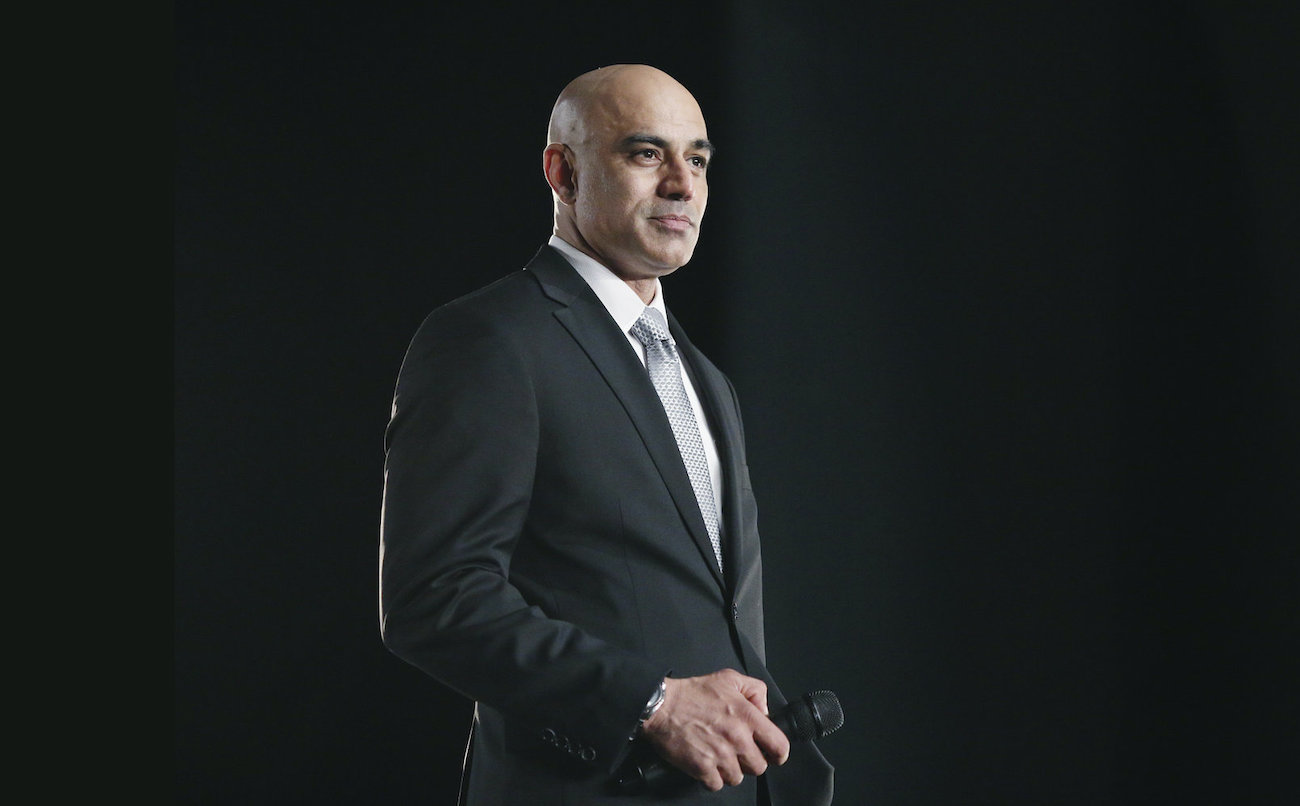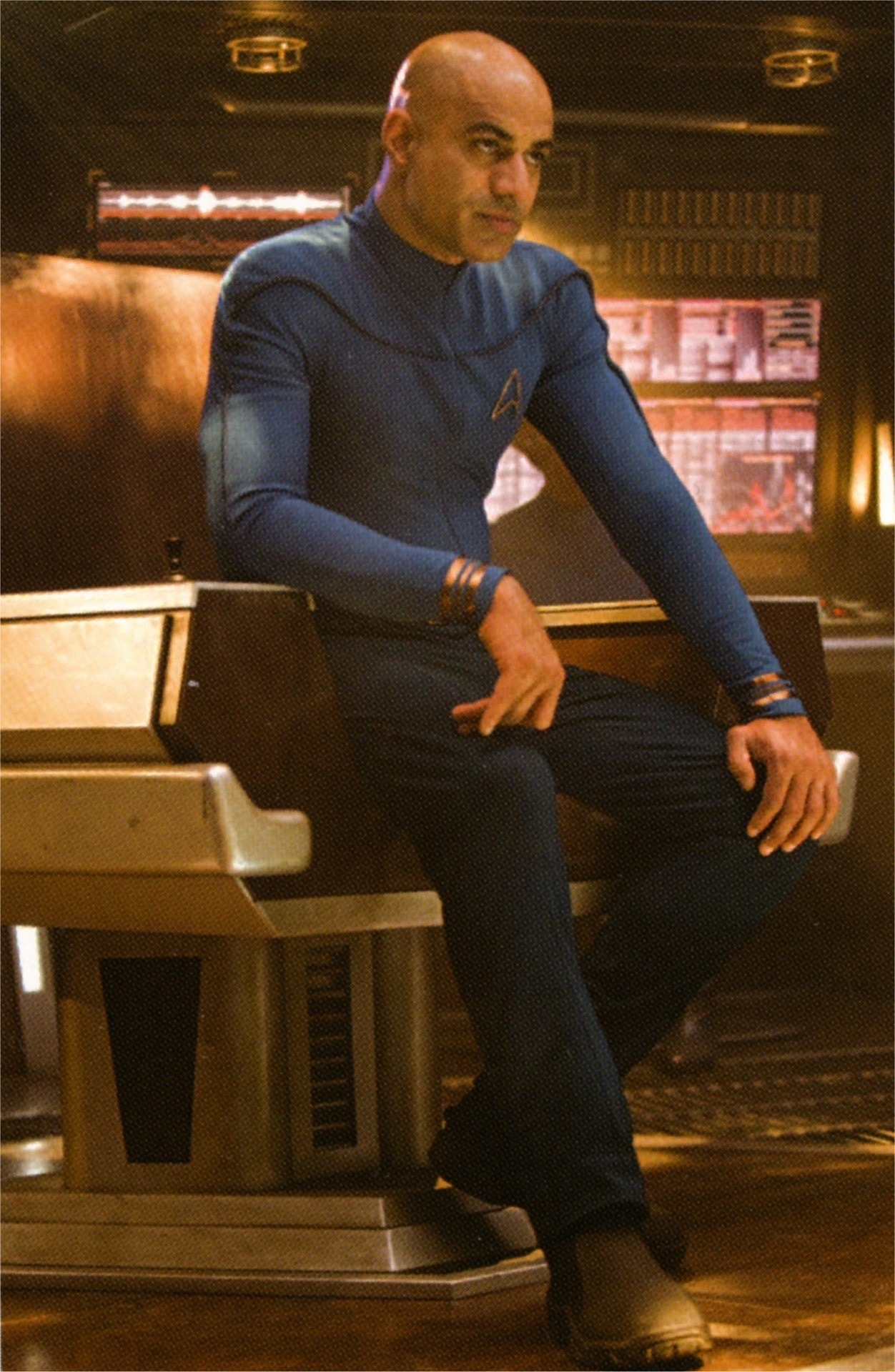Entertainment
The Man from Hollywood

By Khursheed Hyder and Anum Ahmed
For people who have watched Iron Man or Star Trek, the name Faran Tahir comes to mind immediately. The laurels do not stop there – he has played the title role of Othello at the Shakespeare Theatre in Washington DC and performed in over 50 roles in major theatres across the US in classical and contemporary acts. Faran has been a Hollywood insider for over 25 years now and has starred in many TV series and films. His debut appearance was in Disney’s The Jungle Book in 1994 as Mowgli’s father. The star spoke about roles and the possibility of working in Pakistan.
You have worked in many Hollywood films and TV shows; how difficult is it to get a role for a non-American actor?
It is not easy and I won’t lie to you but I always find if anytime someone says no to me, that’s not rejection to me that’s fuel to my fire because if you take every no personally or get rejected or discouraged then where are you going to go? I can’t change the colour of my skin. I can’t change who I am as a Pakistani so I embrace that and make it my strength. I call it my USP – unique selling point.
You have done Broadway and played Shakespearean roles despite being from Pakistan. I think if you focus on trying to develop your merit, sometimes all those things that might hold you back disappear, so what I did was I got my Masters in Performing Arts, studied Shakespeare and tried to make sure that I could understand the spirit of it and how to use that diction, and that language because that’s what Shakespeare gives you. The question is not where you come from, it’s the question of understanding the real spirit of something.
Why haven’t you worked in Pakistani films where you have a fan base?
I would love to work here and a few times I was offered to me, but unfortunately because of logistics and sometimes if I don’t connect with the storyline, then there’s no point of doing it because then I can’t give it my all. To me, content is everything. I am hoping it will happen soon and that’s why I directed this play to perform in Pakistan, to start the process and reintroduce myself through theatre or whatever I can possibly come up with. If I look at the film industry right now I feel very encouraged because the path we are on is actually creating our own distinct voice. For the longest time, our movies and our content was very monotonous. We are finally coming to a point and on the verge of exploring the new genres and exploring new issues.
Tell us about your performance on-stage with your brother Ali Tahir and your experience directing in Pakistan for the first time.
Nervousness is not in my lexicon so I bypass nervousness and fear. I look at fear as energy and channel that energy into my work and leave it to the audience. To be honest, I love criticism because sometimes constructive criticism makes me want to do better but yes, if someone is criticising me maliciously then I am not going to take it.
Coming from a family that is into acting, I started off from the mirror of my bathroom and used to act in front of it. My parents wanted me to make sure that their children had a normal childhood. I grew up literally backstage. I would come back from school and my playground was the costume shop, the makeup room and I used to know everyone’s lines at the tender age of just five. After the show, I used to give them their notes and point out which lines they had missed. In a way, it was great because I could then experience regular life and what do we do when we are trying to act.
When did you start acting?
I started proper acting when I was a freshman in college in US and when I came back, the first play which I did was written by Bano Qudsia and my mother and I acted in it. I have done a few plays in Pakistan, back then my brother Ali Tahir was doing a TV serial named ‘Samjhauta Express’ on PTV and I was in that too. We picked this play ‘Bhai Bhai’ which is a dark comedy to pull people in with laughter, but there is an underlying message which is a real commentary on the society today that we move in, so it had to have that balance. As far as the audiences are concerned, I think every audience whether it is here or from England, the US and other places, creates unspokenly a similar culture. It does not matter when you are doing it as long as the audiences are engaged and you are doing an honest piece of work. It works out. Play ‘Bhai Bhai’ wasn’t for an average person; it was for a certain class.
Your father Naeem Tahir is a pioneer of theatre in Pakistan, how will you carry his legacy forward?
By being honest in whatever I do. The thing I love about my father is that he has worked witout an ego and has always taught me to do my best, and there is nothing you cannot succeed in as long as you work on it. His legacy to me is his untiring effort and that’s what I want to do.
You have worked with Mahnoor Baloch in Hollywood movie Torn. Tell us your experience.
It was really good and we clicked from the very first day; when somebody has talent you know it and you know it’s going to raise your bar also. Similarly, I just worked in an upcoming movie ‘Forbidden Steps’, semi-produced it and we brought Qavi uncle to the US to play my father. The other thing that we must do is start to promote our own legends. We can go to other countries and have them cast there, we have so much to offer to this world and shouldn’t keep our gems hidden. It was not only a pleasure working with Mahnoor Baloch and Qavi uncle but also an honor.

How was the experience of becoming the first Pakistani to star in a Marvel film and Star Trek?
Doing a Marvel film or Star Trek takes you back to being a 10-year-old boy. As a Pakistani, I must give my best, and it’s a merit that makes Pakistan shine as well and what makes me and my country proud. Most of all my dream roles of course are classics, like I was blessed to be part of Othello, which is a huge Shakespearean play and now I want to do something different whether I fall or succeed. One of my teachers once said that ‘If you fall back you are resisting, if you fall forward, you are adventuring, so always fall forward and take the risk and see where you go with it.
In the next five years, I see myself as an honest storyteller. Perhaps as a producer or an actor of what I am very passionate about and find the means to bring it to people.
Your message to aspiring artistes.
My message would be to always dream big and always be ready, work hard to turn those dreams into reality. I have been there and there were times I had no money and lived from hand to mouth, but I do not take that as an embarrassment. In fact, I wear that as a badge of honor. All your failures must be faced with bravery and humility, and your successes must be faced with grace.
